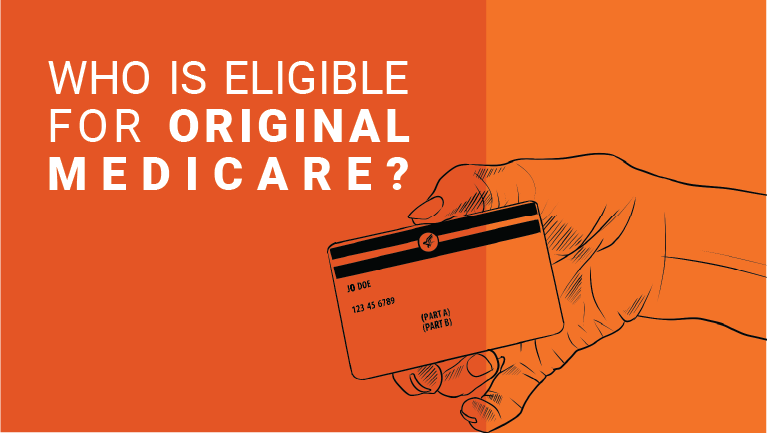American citizens or legal permanent residents who have been living in the U.S. for at least five years are eligible for Original Medicare benefits. You must be 65 or older or have a disability and meet certain conditions to receive Medicare coverage.
Seniors Age 65 and Older
Around 85% of the beneficiaries of Original Medicare are American seniors. If you are turning 65, you can start thinking about the coverage you need and plan for your introduction to Medicare.
It does not matter if you are eligible for Social Security benefits. Whether or not you or your spouse worked long enough to earn retirement benefits, you still are eligible for Original Medicare when you turn 65.
People turning 65 have a seven-month window to enroll in Original Medicare benefits. This is called the Initial Enrollment Period, and it begins three months before the month you turn 65. You can enroll in Medicare Part A and Part B by calling Medicare, visiting your local Social Security office, or applying for benefits through the Medicare website. Once you are enrolled in this standard coverage, you can sign up for additional coverage plans such as Medicare Advantage, Medicare Part D, or Medicare Supplement plans.
The day your coverage begins depends on when you sign up during that enrollment period. If you sign up in the three months before the month of your birthday, coverage starts on the first day of your birthday month (or the first day of the month before if your birthday is on the first day of the month). If you sign up during your birthday month or in the three months after, you can expect coverage to start one month after your application is processed.
People Receiving Disability Benefits
The other 15% of Medicare beneficiaries are eligible due to a disability. Once you have received disability benefits from Social Security or the Railroad Retirement Board for at least 24 months, you can begin to receive Medicare benefits regardless of your age.
People with disabilities are automatically enrolled in Medicare. Coverage begins on the first day of the 25th month of receiving disability benefits.
Amyotrophic Lateral Sclerosis (ALS)
People with a diagnosis of ALS, also called Lou Gehrig’s Disease, should apply for disability benefits as soon as they receive a diagnosis. The same month that they begin receiving disability benefits, people with ALS also receive Medicare benefits.
End-Stage Renal Disease (ESRD)
People with ESRD become eligible to receive Original Medicare benefits during their fourth month of a regular course of dialysis. They are not automatically enrolled but can enroll in Medicare Part A and Part B themselves.
With physician approval and after being trained at a Medicare-certified training facility, people with ESRD can perform at-home dialysis. In that case, they can receive coverage in their first month of a regular course of dialysis.
Speak with Magellan Healthcare for all of your Medicare enrollment questions. Our team specializes in all aspects of Medicare and can help you find coverage that works just for you!


